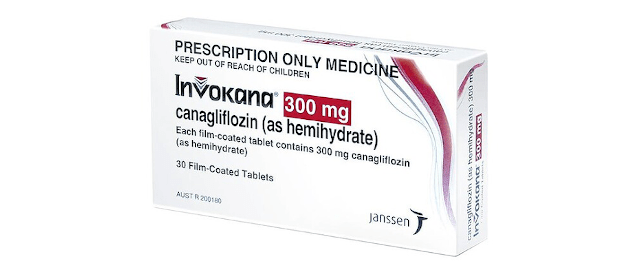
Canagliflozin is an FDA approved SGLT2 inhibitor medication typically used for diabetes treatment (lowering blood glucose spikes) but it has also been proven effective in healthy life extension in the National Institute on Aging’s Intervention Testing Program (ITP) which tests different anti-aging compounds in three simultaneous double blind clinical trials on mice lifespan.
I started using canagliflozing about 4 months ago to test its effects on my blood sugar levels and this is my report.
The ITP reported (in the paper linked to here):
In the context of the mouse Interventions Testing Program, genetically heterogeneous mice were given chow containing Cana at 180 ppm at 7 months of age until their death. Cana extended median survival of male mice by 14%. Cana also increased by 9% the age for 90th percentile survival, with parallel effects seen at each of 3 test sites. Neither the distribution of inferred cause of death nor incidental pathology findings at end-of-life necropsies were altered by Cana.
One Month Use Report:
I’ve been using Canagliflozin for the past month and really like it. It moderates blood glucose levels and makes it really easy to lose weight. I’ve lost about 10 lbs in 3 weeks, without really trying. I have no noticeable side effects other than increased urination.
I researched it after the report form the NIA ITP study came out last year. I tried Acarbose before - but the gas it can cause was less than ideal on occasion. So I’ve moved over to 100mg of Canagliflozin for the first week, then phased up to 300mg in the morning. It seems to do a really good job of managing post prandial glucose levels - typically 70 to 120 during the day - see my typical daily CGM results in screen capture attached (Note that GCM measures are typically 10 to 20 points lower than I see on my finger prick blood glucose test). I eat a fairly low carb diet anyway - but this helps when I include higher glycemic index, higher starch, higher carb foods.
4 Month Update:
Blood glucose control continued to go well during the 4 month trial of canagliflozin. My blood sugar levels seem to hold pretty steady between 80 and 110 most days, all day. Weight loss stopped after the first few weeks - in total I lost about 10lbs with canagliflozin over the first two or three weeks and then it plateaued and I saw no more weight loss. During this entire time I continued regular dose of 10mg of rapamycin once per week.
After several months of using Canagliflozin I started to find I was quite tired all the time. I’d find that on weekends I might go to bed at 11pm, wake up at 7am like I normally would - but would feel that I had a bad sleep. I’d roll over, thinking I’d just go to sleep for a few more minutes… but when I woke up I’d realize it was now noon - so I’d been sleeping for over 12 hours! I haven’t slept for 12 hours since I was a teen ager so this was highly unusual… and it kept on happening. What I found surprising is that this side effect took months to become evident. Usually with medicines I thought you would get the side effect quite quickly. With rapamycin I had a canker sore within a day or two of taking an early dose - it went away after a few days, and I’ve never had that side effect again. So when I began to start feeling exhausted all the time, and sleeping far in excess of normal, months after initiating canaliflozin, I didn’t initially suspect the medicine.
So finally this month I read in some reports that exhaustion (extreme fatigue) was an occasional side effect (1% or 2% of users) of canagliflozin. I stopped taking it, and my sleep has quickly returned to normal - I get 7 to 8 hours, feel great and have all my energy back.
I’m wondering whether other SGLT2 inhibitors have the same side effect profile and whether something like empagliflozin would impact me in the same manner. I’m going to read up on the studies and may try it.
Leitura Relacionada: Canagliflozin - Another Top Anti-Aging Drug
Recent Studies, Resources:
A recent Peter Attia Update on Rapamycin and other anti-aging drugs:
“There is another drug that is super exciting called canagliflozin” a more elegant version of acarbose that works in the kidney. Extends life of mice in the ITP study almost as much as rapamycin. Discussion of Acarbose and Canaliflozin starts at minute 1:43 timestamp on this podcast, June, 2021
Good, In-depth discussion on Canaliflozin testing in the National Institute on Aging ITP program by Peter Attia and Richard Miller: Richard Miller on Canagliflozin and SGLT2 inhibitors, Feb. 8, 2021